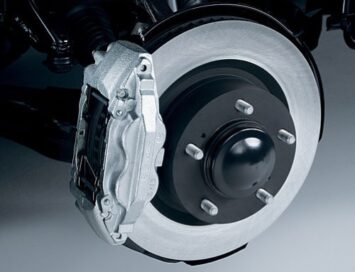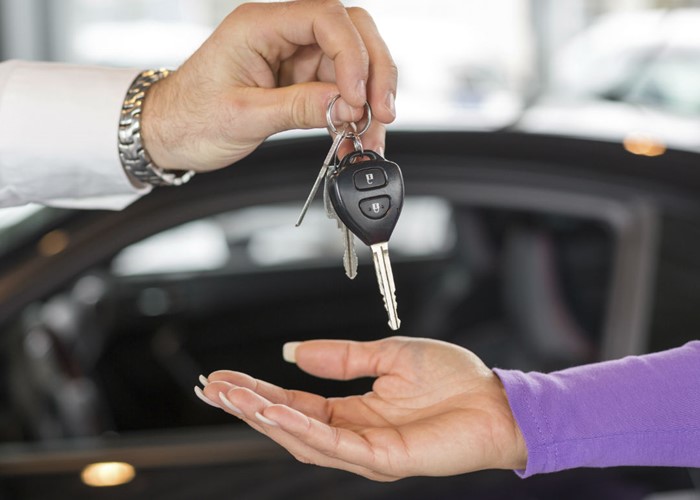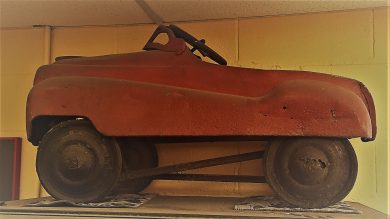You slowly back out of your driveway, tap your brakes, and hear a loud grinding sound. Oh, no… Your mind starts racing. When can I get into the shop? I really don’t have time for this. They loudly grind again at the end of the street. This is embarrassing. By the time you leave your neighborhood, though, the grinding has disappeared. That was really weird. What on earth is wrong?
Later on, when you pull out of your parking space at work, the noise is back. Ugh!
::
Brake noises can certainly be irritating and embarrassing, but they don’t always mean that your brakes have stopped working correctly.
With your brakes, our primary concern is whether they are functioning properly: Are they safely stopping you and your vehicle? Even when they are working properly, there are a few reasons your brakes may still make noise.
The most common noise that we encounter at lowell’s is the harmless but loud phenomenon of flash rust.
 Flash rust occurs when tiny rust particles form on your brake rotors. The rust particles form in small pits or grooves in your rotor. The first few times you use your brakes, they make a terrible racket as the brake pads rub against the rust. After a while, the friction from your braking rubs the rust particles away. With your pads once again meeting clean metal, the terrible racket stops.
Flash rust occurs when tiny rust particles form on your brake rotors. The rust particles form in small pits or grooves in your rotor. The first few times you use your brakes, they make a terrible racket as the brake pads rub against the rust. After a while, the friction from your braking rubs the rust particles away. With your pads once again meeting clean metal, the terrible racket stops.
Why does flash rust happen?
Your brake rotors are metal discs which are largely exposed to the elements. Wet road conditions or high humidity can help trigger flash rust. The rust has more chance to grow when the car sits overnight or over a weekend. In the winter, road salts also contribute to faster rusting.
How can you tell when you have flash rust? Here are some things to look for:
- The brake noises occur a few times and then fade away.
- The noise itself can be squealing, grinding, or groaning. It can be wake-up-the-neighbors loud or fairly quiet.
- You usually hear the noises after the car has been sitting for a few hours (first thing in the morning, after a weekend, or after work, for example)
- You tend to hear it more when it has been raining or snowing a lot. (Especially when the roads are slushy.)
If most of these symptoms match what is happening with you car, you likely have a flash rust issue. Your brakes are probably functioning properly despite the noise. If your noise is just intolerable, sometimes it can help to have us resurface your rotors. Resurfacing leaves fewer pits and grooves for the rust to form in and cling to.
If the noises you are hearing don’t go away or if you notice that your braking has gotten worse, that may be a sign of something wrong, and you should probably have your brakes checked over. Just call the shop, and we can schedule you for a brake inspection.





